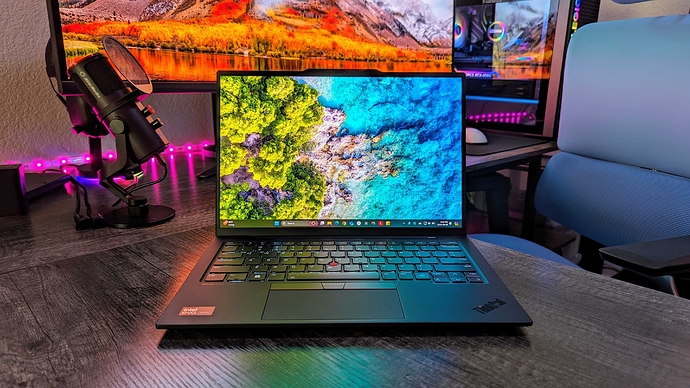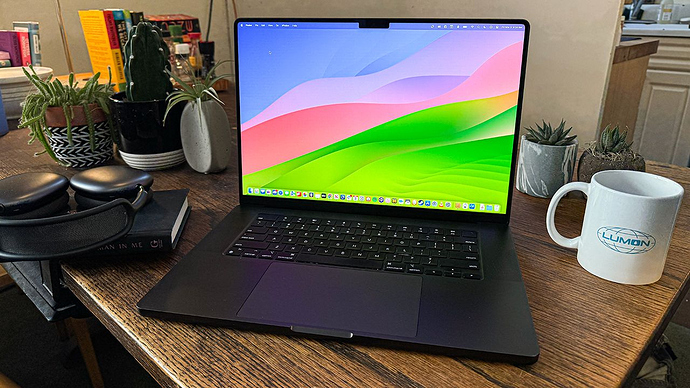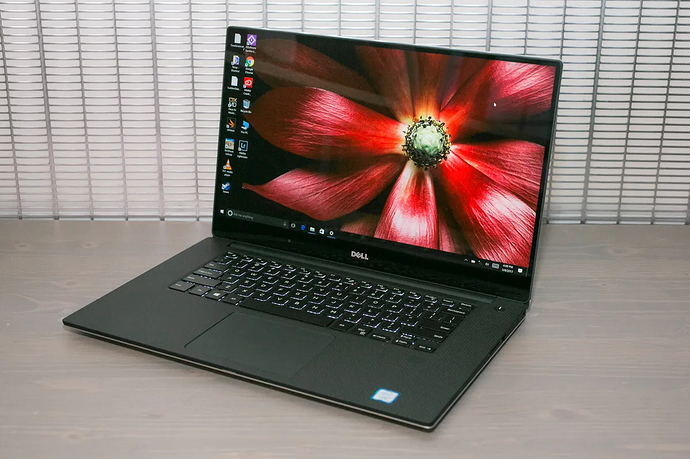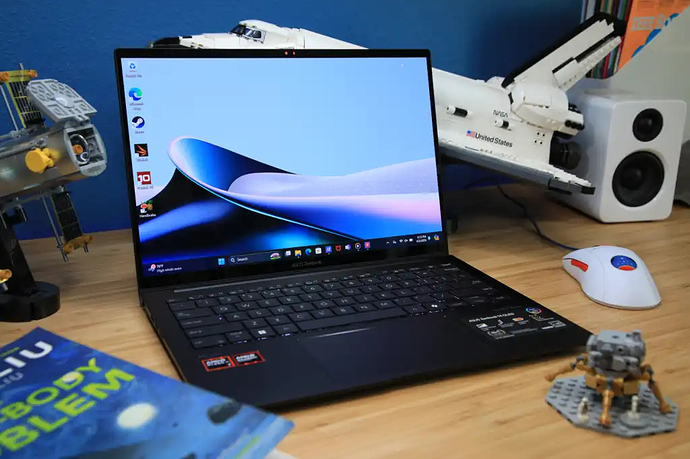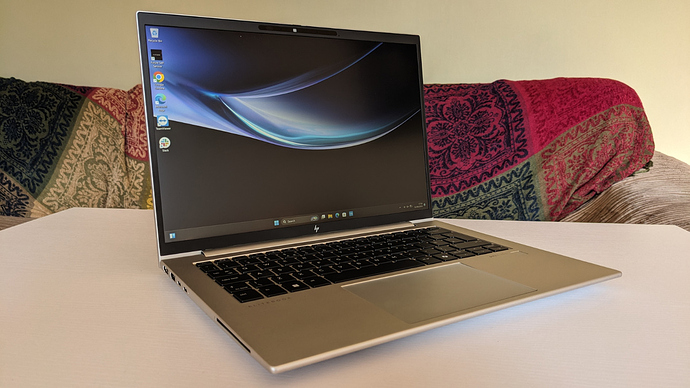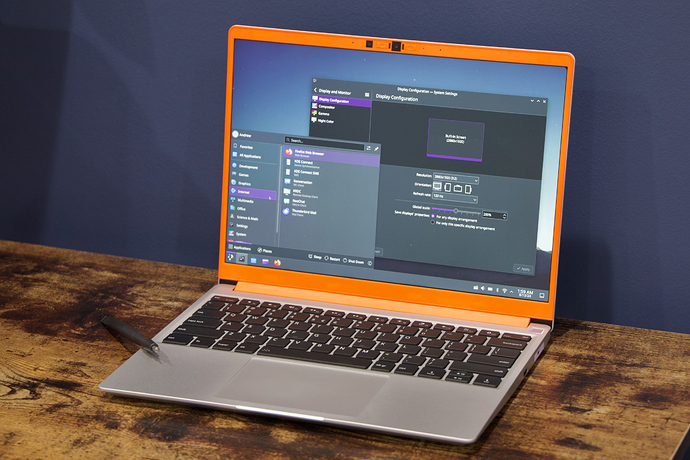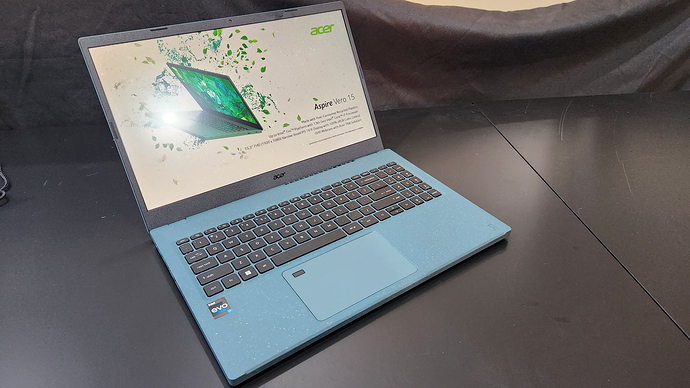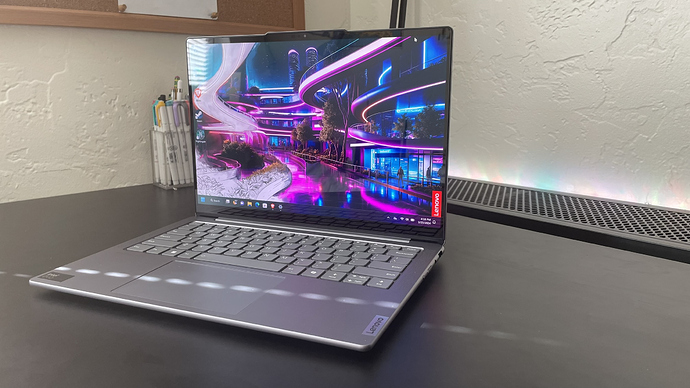Being an IT student means you’re not just taking notes and writing papers. You’re running multiple virtual machines, coding in different environments, compiling software, managing network tools, and jumping between a dozen tabs at once.
You need a laptop that keeps up. Not one that overheats, lags, or dies halfway through your lab. Here are eight real options that match the way IT students work. From first semester to final project, these picks can carry you through.
1. Lenovo ThinkPad X1 Carbon Gen 12
Best For: Long-Term Use and Enterprise-Level Reliability
This is the classic IT student laptop. It’s lightweight but tough, the keyboard is one of the best out there, and it runs everything from Linux tools to PowerShell like a breeze. With Intel’s latest chips and long battery life, you can code, research, and debug for hours without stressing it.
It also comes with business-class security and ports IT students actually use. Perfect if you want one device to last the entire program and still feel pro after graduation.
2. MacBook Pro 14 with M4 Pro
Best For: Cross-Platform Development and Performance
If your program involves macOS development, cross-platform apps, or heavy creative tools alongside technical work, the MacBook Pro is a strong fit. The M4 Pro chip runs fast and cool, and you’ll be able to handle everything from Xcode to Docker without lag.
Battery life is long. Build quality is premium. And if you’re in IT but also dabble in UI/UX, video editing, or web design, this gives you room to do more.
3. Dell XPS 15
Best For: Windows-Based Programming and Power Users
This one’s a powerhouse. You get the latest Intel Ultra chip, optional RTX graphics, and enough RAM to run full VM stacks or even light gaming after class. The screen is bright and accurate, and the build is clean without being flashy.
If your work leans toward .NET development, Windows Server, or heavier multitasking, this is a serious all-around performer.
4. ASUS Zenbook 14 OLED
Best For: Everyday Performance and Portability
This laptop gives you great performance without bulk. The OLED screen is easy on the eyes for late-night coding and the AMD or Intel options give you plenty of speed for everyday IT work.
You won’t be running GPU-intensive stuff on this, but for web development, system admin tools, packet sniffers, and study sessions, it holds up and travels well.
5. HP EliteBook 840 G11
Best For: IT Students in Enterprise-Focused Tracks
This one’s geared toward students working in cybersecurity, networking, or system administration. It’s built like the laptops companies issue to their engineers. You get strong security features, lots of ports, and a design meant for work, not flash.
It runs cool and stable, handles multiple toolchains at once, and has the kind of durability that matters when you’re hauling it everywhere on campus.
6. Framework Laptop 13
Best For: Students Who Want to Repair or Upgrade Their Own Device
This laptop is modular, repairable, and designed for people who know tech. If you want a system you can open up, upgrade, or tweak over time, this is one of the only mainstream options that lets you do that without voiding anything.
It’s also Linux-friendly and runs most IT stacks smoothly. Great for students who want to learn hardware alongside software and build a system that evolves with them.
7. Acer Aspire Vero 15
Best For: Budget-Conscious IT Students Who Still Need Power
This laptop runs clean and fast for the price. With Intel Core Ultra processors and 16GB of RAM standard, you can handle your labs, coding environments, and browsers all at once without it choking.
It also looks sharp, has decent thermals, and is eco-conscious in how it’s built. Solid option if you’re in your first year or need something that handles the workload without breaking your budget.
8. Lenovo IdeaPad Slim 7i Gen 9
Best For: Lightweight Use with Enough Power to Code All Day
If you’re bouncing between classes, working part-time, and studying in different spots, this one is light, quick, and reliable. It’s not the most powerful on the list, but it runs VS Code, Wireshark, and everything you need for most coursework.
Battery life is strong. The display is clean. And it’s built well enough to last a few years without needing a full replacement mid-program.
How I Picked These Laptops
- Real IT Workload Tested : These laptops can handle IDEs, Linux tools, VMs, and heavy multitasking
- Battery and Thermals : You won’t be constantly searching for an outlet or burning your lap
- Portability with Power : Most of these are under 4 pounds but still pack enough performance
- Operating System Support : Whether you prefer Windows, Linux, or macOS, you’ve got options
- Futureproofing : Each pick is good enough to last your entire degree and even into your first job
FAQs
How much RAM should an IT student have?
16GB is the sweet spot. Go 32GB if you’re running multiple virtual machines or heavy dev tools.
Do IT students need a dedicated GPU?
Not always. It depends on your program. If you’re doing basic scripting or networking, no. If you’re doing machine learning or simulation work, then yes.
Can I use a MacBook for IT work?
Yes, especially if you’re working on mobile or cross-platform apps. Just check if your program has Windows-only software.
Is Linux support important?
For many IT students, yes. Being able to dual-boot or run Linux in a VM helps with command-line training and network-based coursework.
Final Thoughts
IT students need more than just a fast laptop. You need something that supports your tools, your projects, and your future career. The laptops in this list were picked to match those real needs — from lab assignments to job interviews.
Whether you’re managing code, running simulations, or just trying to survive a late-night group project, these laptops can keep up. If you’ve found one that made your work easier, drop it below. Someone else is probably trying to make the same decision right now.

